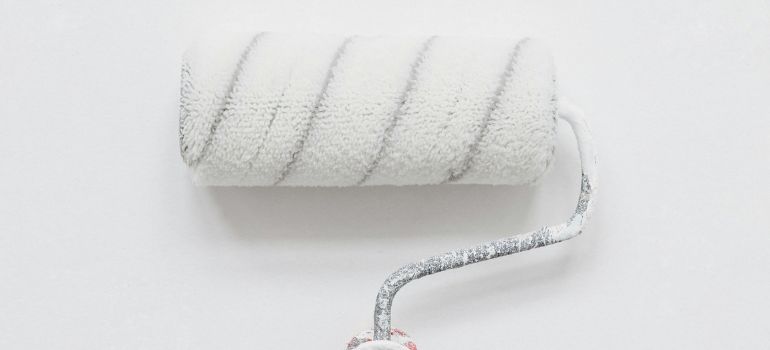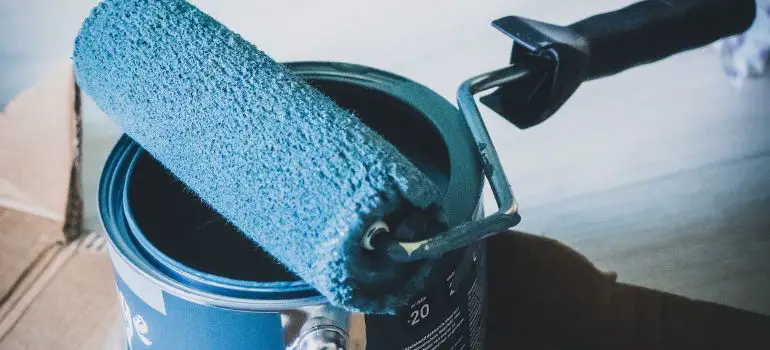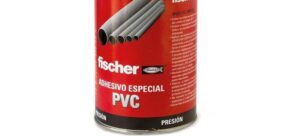If you’ve recently undertaken a painting project, whether it’s a room, a piece of furniture, or any other surface, you may have encountered the unmistakable smell of primer. Primer is an essential part of the painting process, as it helps paint adhere better and provides a smooth surface for a flawless finish. However, one common concern among DIY enthusiasts and homeowners is how long the primer smell lasts after application. In this comprehensive guide, we will explore the factors influencing primer odor and provide practical tips on how to minimize it.
Understanding Primer and Its Composition
Before delving into the duration of primer smell, it’s essential to grasp what primer is and what it’s composed of. Primer serves as a crucial preparatory layer applied to surfaces before painting. It performs several key functions, including:
1. Creating a Strong Bond
Primer plays a pivotal role in establishing a robust bond between the paint and the underlying surface. This bond ensures the paint adheres securely, leading to a long-lasting and durable finish.
2. Stain Blocking
Certain types of primers are specifically designed to block stains. They prevent stains from bleeding through the paint, preserving the quality of the final appearance.
3. Smoothing Imperfections
Primer has the ability to fill in minor imperfections on the surface, resulting in a smoother and more even base for paint application. This process contributes to a professional and polished outcome.
4. Enhancing Paint Performance
Additionally, primer can enhance the overall performance of the paint. It aids in improving coverage, color vibrancy, and the longevity of the paint job.
Factors Influencing Primer Smell Duration
The duration of primer smell can be influenced by several key factors. Understanding these factors can help you manage and minimize the lingering odor in your painting project:
1. Type of Primer
The type of primer you choose plays a significant role in how long the smell will last. There are two primary types: oil-based and water-based. Oil-based primers tend to have a stronger and longer-lasting odor compared to their water-based counterparts.
2. Ventilation
Proper ventilation is a critical aspect of managing primer odor during a painting project. Adequate airflow in the painting area can significantly impact how quickly the primer smell dissipates. Here’s why ventilation matters:
Enhanced Odor Dispersal
Good ventilation helps disperse the primer smell more effectively. When you paint in a well-ventilated space, the odorous molecules are carried away, reducing the concentration of the smell in the air.
Faster Drying
Improved airflow can also accelerate the drying process of the primer. Quicker drying means that the smell will diminish sooner, making your painting experience more comfortable.
Health and Comfort

Proper ventilation not only minimizes odor but also ensures a healthier and more comfortable environment for you and anyone else in the vicinity. Breathing in excessive primer fumes can be unpleasant and potentially harmful.
3. Temperature and Humidity
The ambient temperature and humidity levels in the room can affect the drying process of the primer and, subsequently, the duration of the smell. Higher temperatures and lower humidity levels can speed up the drying process, which may result in a quicker reduction in odor.
4. Number of Coats
Applying multiple coats of primer can extend the duration of the smell. It’s essential to follow the manufacturer’s recommendations regarding drying times between coats to minimize the buildup of odor.
5. Primer Quality
The quality of the primer you select can also impact how long the smell lasts. High-quality primers typically have lower levels of Volatile Organic Compounds (VOCs), resulting in a milder odor that dissipates more quickly.
Tips to Minimize Primer Odor
If you’re dealing with the strong odor of primer during your painting project, there are several effective strategies you can employ to minimize and manage the smell:
1. Choose Low-VOC Primers
Opt for primers with low VOC (Volatile Organic Compounds) content. Low-VOC primers have a milder odor that dissipates more quickly. They are also better for your health and the environment.
2. Ensure Proper Ventilation
Proper ventilation is key to reducing primer odor. Paint in a well-ventilated area by opening windows and doors. You can also use fans to improve airflow and help the odor disperse faster.
3. Utilize Odor Neutralizers
Consider using odor-neutralizing products designed to eliminate strong odors. These products work by breaking down and neutralizing the odor molecules in the air, making the room more pleasant.
4. Allow Adequate Drying Time
Follow the manufacturer’s recommendations regarding drying times between coats of primer and before applying paint. Rushing the drying process can prolong the primer smell, so be patient and give it the necessary time to dry thoroughly.
5. Seal and Paint
In some cases, applying a layer of paint over the primed surface can help seal in any remaining odors. This additional coat can expedite the removal of the primer smell and provide a fresh, clean scent.
Conclusion
In summary, the duration of primer smell can vary based on factors like the type of primer, ventilation, temperature, and more. By choosing the right primer, ensuring proper ventilation, and following our tips, you can significantly reduce the time it takes for the smell to dissipate. Remember that primer odor is a temporary inconvenience and a small price to pay for achieving a beautiful and long-lasting paint job.
Frequently Asked Questions (FAQs)
While it’s essential to follow the manufacturer’s recommended drying times, you can use fans and maintain proper ventilation to help expedite the process.
Using odor-neutralizing products and keeping the area well-ventilated are effective ways to hasten the removal of primer smell.
No, the intensity of primer smell varies depending on the type of primer. Water-based primers generally have a milder odor compared to oil-based ones.
While primer smell is not harmful in small quantities, it’s best to avoid prolonged exposure. Ensure proper ventilation when working with primer.
Scented candles or air fresheners can temporarily mask the smell, but they won’t eliminate it. It’s better to focus on ventilation and odor-neutralizing products for a more effective solution.



